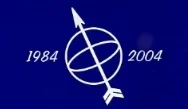Aug99
archive > Log > Log1999
Hong Kong

Salvage

Alan Loynd (fleet manager of the Hong Kong Salvage Co Ltd) and Clive Beesley (admiralty manager of Ince & Co, Hong Kong) gave a joint presentation to an audience of about 50 people at the Police Officers'Club on 20 May 1999. Our Hong Kong branch chairman David Coldwell introduced the speakers.
The presentation, with slides and handouts, lasted about one hour, including a question and answer session. Hong Kong branch members were joined by members of the Hong Kong Ship Owners'Association.
We were given an overview of the legal position and background to marine salvage. It was pointed out that the first international law on the subject was the 1910 Brussels convention even though the industry and case law on salvage can he traced back hundreds of years in England (longer still under Roman law). The latest salvage convention was made in 1989 and came into force in 1996.
The general concept of salvage has historically been one of 'no cure no pay' (NCNP), so if a salvor worked long and hard on a job he could only be sure of earning a reward if he succeeded and there was a physical and financial cure.
Those who pay for salvage (normally hull and machinery as well as cargo underwriters) generally feel that salvage rewards are generous enough to encourage salvors to respond to shipping casualties.
Following cases such as Torrey Canyon and Amoco Cadiz, the Lloyd's open form (LOF) was revised (1980 version) and a so-called safety net was introduced specifically in relation to cases involving laden tankers. In the ten year period that the LOF 80 existed there were only six safety net cases. A revised version of LOF came about in 1990 and, as matters stand, the most widely used salvage contract in the world is the 1995 version, LOF 95.
LOF incorporates sections of the 1989 Salvage Convention and is made up of a number of articles. Article 13 salvage may be called conventional or'normal' salvage. The salvor is rewarded on the NCNP principles mentioned above. Article 14 deals with cases where environmental issues arise and the'normal' approach to the assessment of the salvage award is not by itself adequate. Some cases involve both types of claim.
There have not been many article 14 cases although difficulty, ie disagreement in the industry and in legal circles, has shown that the expressions 'fair rate' and 'coastal waters' have led to an unsatisfactory position. Consequently in 1997 there was a meeting between the International Group of P&I Clubs (IG) and the International Salvage Union (ISU). This led to the drafting of the Special Compensation P&I Clause (Scopic).
In cases where environmental issues arise and where 'normal' salvage would appear to be uneconomic, it was proposed that salvors could opt for a tariff rate would apply to their craft, equipment and personnel. Scopic remains only in draft and there is little data available publicly at the moment to form a view on when, or indeed if, it will be implemented. Interestingly, there have been two cases where the parties have simply agreed to adopt Scopic, so there is clearly a degree of support for it. The big question at the moment seems to be whether we shall see LOF 2000?
One question asked: Have we seen and are we seeing a shift away from pure NCNP salvage? It would certainly seem so, with more and more effort being made towards some certainty of outcome in the difficult and challenging cases where Scopic might well be ideally suited.
Salvors instinctively believe that they are underpaid. Those who pay for salvage might contend that rewards are sufficient. This is a never ending debate. The simple fact is though that the marine industry needs salvors (as the public needs doctors and nurses) and salvors are not in the charity business. There are fewer and fewer'pure' salvors. Most tug owners rely on commercial activity and non-speculative salvage efforts for their bread and butter income ' eg harbour towage, mooring/unmooring operations etc. The Hong Kong Salvage & Towage Co Ltd (HKST) have an impressive array of salvage capability and investment but they would not and could not survive on salvage alone. HKST is also the one and only company to have 'salved' a jumbo jet!
HKST as one of 46 members of the ISU which is represented in 30 countries around the world. Reference was made of the need for salvors to be notified of a problem at the very outset. Salvors would like to see the situation whereby maritime rescue coordination centre (MRCC) organisations make direct contact with commercial tug operators. Salvors currently have to pay for this information from commercial service providers and sometimes learn of a ship in distress from the media, several or many hours later than they would like.
Contributed by Clive Beesley, Companion
Seaways August 1999

